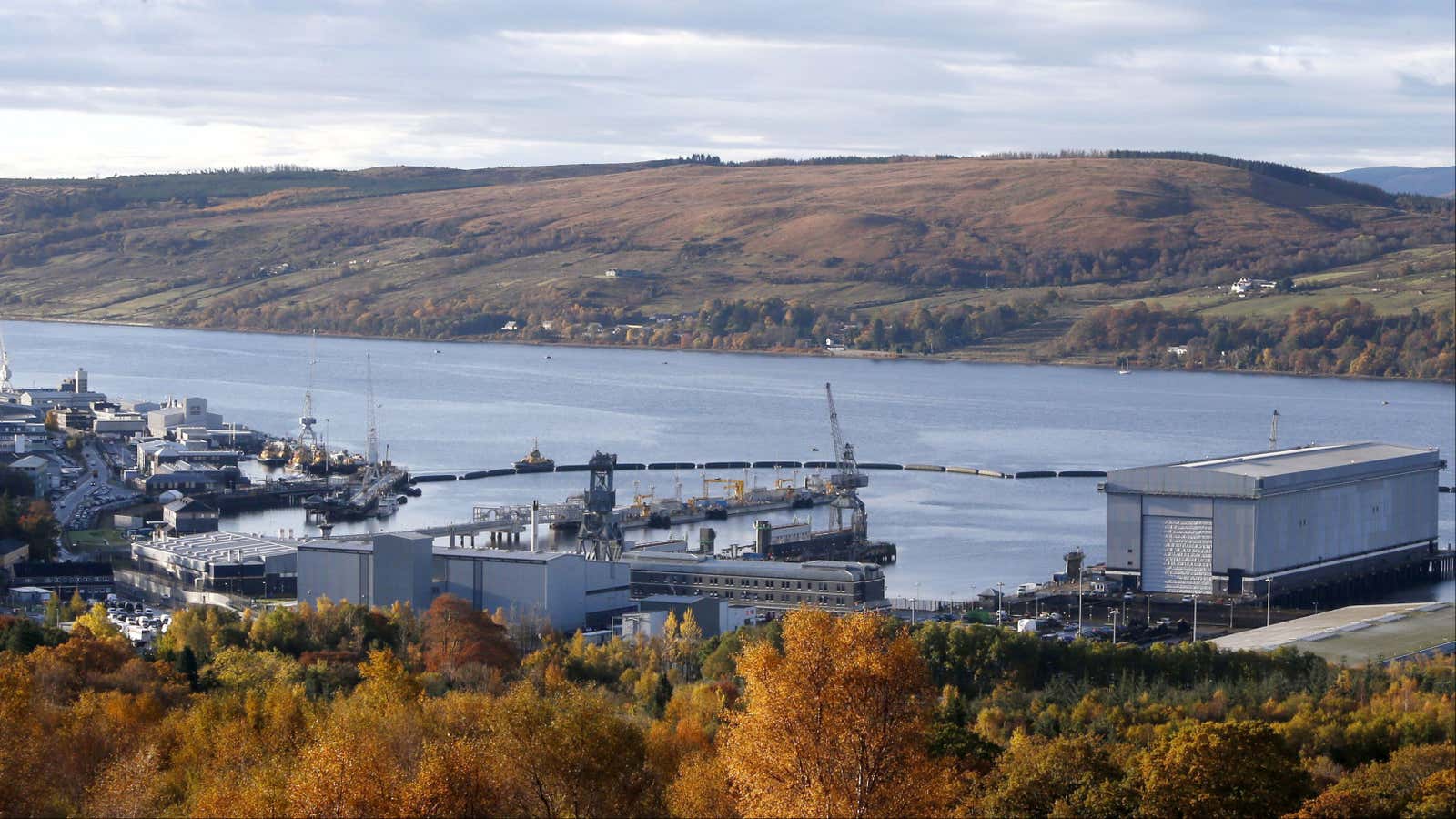The Scottish independence campaign may not have the US government on edge, but at least one major player in Washington is keeping very close tabs on the situation: defense contractor Lockheed Martin.
The reason? Trident—Britain’s nuclear submarine base.
Trident is a defense system of four submarines armed with Trident II D5 Fleet Ballistic Missiles (FBM), operated by the Royal Navy and stationed at Clyde Naval Base on Scotland’s west coast. The missiles are manufactured and supplied by Lockheed. Trident is deeply polarizing in Scotland, and the pro-independence “yes” campaign has promised to move the program off its territory if it prevails in next week’s referendum.
“Lockheed Martin is one company that makes a lot of money off supplying parts for Trident and has put pressure on the US and UK to keep it in Scotland,” George Perkovich, director of the nuclear policy program at the Carnegie Endowment for International Peace, tells Quartz.
Scotland’s First Minister, Alex Salmond, has said that the nuclear arsenal could be removed by 2020. An independent think tank, the Royal United Services Institute, has said a more likely target is 2028. It estimates that moving the weapons would cost £2.5 billion ($4.1 billion) to £3.5 billion ($5.7 billion) overall, while the UK government has put the price tag at as high as £25 billion ($40.6 billion). Former UK naval chief Admiral Sir Mark Stanhope wrote an open letter to Salmond on Wednesday, saying Salmond’s plan for removing Trident would “add a dangerous period of destabilisation in our nuclear defence posture at a time when the international picture is clearly deteriorating.”
The political tension has not been reassuring for Lockheed Martin. The Trident system is one of seven programs that form Lockheed’s space systems portfolio, which generated $8 billion in net sales last year, according to a company filing.
A Lockheed Martin spokesperson offered this in a statement to Quartz:
“The outcome of the referendum is for the people of Scotland to decide. Our only observation is that uncertainty is bad for business.”
Perkovich says the program is one of the company’s biggest in Europe, and losing it would be a blow. Ultimately, he says, all Lockheed can do is wait and see how London deals with the issue if it arises.
“In the event of a ‘yes’ [victory], there will need to be an extensive negotiation with England by Scotland,” Perkovich says.
There is historical precedent in Europe of relocating nuclear weapons from one country to another. In the case of Trident, Perkovich says, a UK without Scotland would need to weigh the pros and cons of moving the nuclear weapons south.
“It forces England to make a very, very hard decision,” Perkovich says. “If you can’t continue to base [the missiles] in Scotland, then you’re going to have to spend a lot of money, likely billions and billions, to move them to England. That question for England would become quite acute.”




